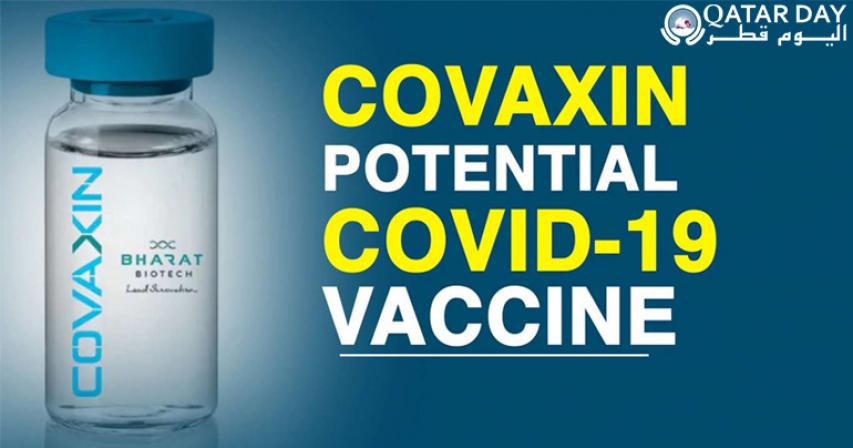In an unprecedented move, vaccine maker Bharat Biotech has cut the size of Phase-2 clinical trial of its COVID-19 vaccine Covaxin by half. Instead of testing the vaccine candidate on 750 healthy volunteers, as per the earlier approved protocol, the company will now be dosing just 380 volunteers, sources told CNBC-TV18. The number of sites conducting the trials has also been reduced accordingly.
While confirming the development, two lead trial investigators told CNBC-TV18 that the decision was based on good seroconversion or immunogenicity seen in volunteers in Phase 1.
Covaxin, which is an inactivated Sars-Cov-2 vaccine, has completed Phase 1 trials on 375 healthy volunteers. The active trial sites in Phase 2 are currently in the process of administering the second dose of Covaxin to participants. Apart from minor side effects like mild fever and body aches, trial investigators say no major adverse reactions have been noted so far.
Covaxin is a 2-dose vaccine to be administered in a gap of 14 days between doses. The interim data for Phase 1 or 2 has yet not been published or made public.
Sources indicate the move to trim could expedite Phase 2 trials, lead to early initiation of Phase 3 trials and could shorten the overall clinical trial duration for Covaxin. For the 3 vaccines under clinical trials in India, preliminary findings are expected only by January and final results by March, according to trial investigators. A trimmed timeline could mean the pace of development for Covaxin may be faster. It is being developed by Bharat Biotech in collaboration with the Indian Council of Medical Research and the National Institute of Virology.
Bharat Biotech has however yet not responded to CNBC-TV18 queries to detail the reasons behind shortening trials. A company source however confirmed the development.
On October 5, the Drugs Controller General of India's (DCGI) subject expert committee (SEC) denied approval for starting Covaxin Phase 3 trials based only on the interim data of early-stage trials. The SEC opined that while the design of the Phase 3 study “is in principle satisfactory”, clarification is needed on the definition of “asymptomatic” participants, and “the study should be initiated with appropriate dose identified from the phase 2 safety and immunogenicity data.” Hence data from the second phase of its trial must be submitted “for consideration”.
Bharat Biotech is said to have submitted a plan to test 28000 volunteers in late-stage Phase 3 trials.
There are 42 candidate COVID-19 vaccines in clinical evaluation and nearly 9 experimental vaccines are in late-stage clinical trials globally, as per data from the World Health Organisation. While many of these vaccine trials have seen minor amendments in the process, Bharat Biotech’s Covaxin is the only one to see a major alteration as cutting Phase 2 size by half.
Experts say it is possible that a good immune response in Phase 1, even if measured as a secondary goal, could be the reason a larger Phase 2 trial was thought to be not required.
In a vaccine trial, Phase 1 tests the vaccine primarily for safety. Studying immunogenicity (meaning antibody response after vaccination) is a secondary goal post in Phase 1 trials. Phase 2 trials on the other hand look to study immune response primarily and appropriate doses, while also assessing the safety of the vaccine in a larger number of volunteers. Phase 3 trials test the vaccines in thousands of volunteers to provide pivotal evidence that a vaccine both works by reducing the rate of infection and is safe.
Dr Gagandeep Kang, Professor at Christian Medical College Vellore and one of India’s leading medical scientists, says there could be a way to explain reducing the size of the Phase 2 study from what was proposed.
“A good immunogenicity readout from Phase 1, would encourage the company to combine immunogenicity data from Phase 1 and the abbreviated Phase 2 and move rapidly to Phase 3. Of course, approval from the regulator would be required, and a way to get that would be to nest an immunogenicity cohort in the Phase 3 study. This could shorten the overall timeline for all phases of testing with no compromise,” she said.
These modifications however were still not reflected in the Clinical Trials Registry of India.
Vaccine expert Dr Davinder Gill however questioned the rationale. “It is puzzling. Many other leading vaccine candidates like the ones from Cansino and Sino Pharma got good immunogenicity data in Phase 1 studies, but they continued their full course of planned trials. My apprehension is why shorten Phase 2 trials and not study safety in a complete manner.”
A large Phase 1 trial and similar goalposts in the two rolling early-stage trials could be another reason to combine and shorten, say experts. Most Phase 1 studies recruit less than 100 volunteers, Phase 2 tests vaccines on a few hundreds and typically late-stage Phase 3 trials test in thousands in various parts of the world. Bharat Biotech’s Phase 1 trial itself was on 375 participants.
India’s second indigenous vaccine maker Zydus Cadila is currently testing its 3-dose vaccine in 1000 volunteers in Phase 2 trials. Dosing is expected to be completed by the end of November and results for Phase 1/2 are expected by 2020 end, say investigators.
University of Oxford’s vaccine candidate, being developed by Serum Institute of India, has completed the first dosing in 100 participants in Phase 2 trials. Screening & recruitments of volunteers for Phase 3 trials are ongoing in several sites. Serum Institute will test the vaccine in 1500 volunteers in Phase 3.
A detailed query sent to Bharat Biotech remained unanswered.

Comments